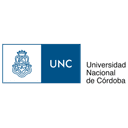This course is part of Siembra Directa: agricultura productiva sustentable.
This comprehensive course examines soil as one of the planet's key locations for matter transformation and conversion of solar energy into biomass. You'll learn how soil biological variables can be studied at different organizational levels and through a holistic systems approach. The course explores the bidirectional relationship between agriculture and soil biology—how agricultural practices modify soil biology and how soil biology influences agriculture. You'll discover that productivity is directly linked to soil fertility, which has a biological foundation, and that increased organic matter is a consequence of biological activity rather than the reverse. The curriculum covers how biological activity depends on energy input to soil through photosynthesis and carbon contribution. You'll learn how agricultural management practices alter soil biological activity, either through direct actions like tillage and agrochemical use, or through omission by ignoring biological services. The course introduces the concept of soil microbiome—the collective term for all microorganisms found in soil, including archaea, bacteria, viruses, fungi, protists, and other microbial eukaryotes. You'll explore current research on soil health related to crop occupation and how greater crop rotation can improve soil biology and health by increasing biological diversity and soil physical structure, thereby reducing disease development and agrochemical use.
Instructors:
English
English, Español
What you'll learn
Understand soil as a site of matter transformation and biomass generation Explore the bidirectional relationship between agriculture and soil biology Learn how soil microorganisms contribute to biofertility and ecosystem services Discover how agricultural practices modify soil biological activity Examine the concept of soil microbiome and its components Analyze the BIOSPAS Project findings on sustainable agricultural practices Understand how crop rotation improves soil biology and health Explore how cover crops promote soil microbiology and reduce chemical inputs
Skills you'll gain
This course includes:
PreRecorded video
Graded assignments, Exams
Access on Mobile, Tablet, Desktop
Limited Access access
Shareable certificate
Closed caption
Get a Completion Certificate
Share your certificate with prospective employers and your professional network on LinkedIn.
Created by
Provided by

Top companies offer this course to their employees
Top companies provide this course to enhance their employees' skills, ensuring they excel in handling complex projects and drive organizational success.





There are 5 modules in this course
This course provides a comprehensive exploration of soil microbiology within no-till farming systems. Participants will learn how soil serves as a crucial planetary location for matter transformation and biomass generation. The curriculum examines the relationship between agricultural practices and soil biology, emphasizing that productivity is linked to soil fertility, which has a biological foundation. Students will learn about the soil microbiome—the collective term for all soil microorganisms including bacteria, fungi, viruses, and other microbes—and their diverse functions in creating biofertility. The course covers ecosystem services provided by soil that contribute to human quality of life. A key focus is the BIOSPAS Project, a research initiative that analyzed soil health across various sites using biological indicators. The course explores how modern agriculture affects soil health through crop occupation and rotation, demonstrating that greater crop diversity improves soil biology and physical structure. Students will discover how cover crops promote soil microbiology, increase microbiome diversity, reduce disease development, and decrease agrochemical usage, ultimately minimizing environmental problems through enhanced agricultural practices.
La microbiología del suelo en la sistema de siembra directa. La importancia y funcionalidad de la microbiología en el sistema agrícola.
Module 1
La biología de suelo, clasificaciones y conceptos fundamentales.
Module 2
Las plantas y cultivos.
Module 3
Proyecto Biología del Suelo y Prácticas Agrícolas Sustentables " BIOSPAS".
Module 4
Análisis de lípidos en el suelo para definir perfil lipídico y micorrizas.
Module 5
Fee Structure
Individual course purchase is not available - to enroll in this course with a certificate, you need to purchase the complete Professional Certificate Course. For enrollment and detailed fee structure, visit the following: Siembra Directa: agricultura productiva sustentable
Payment options
Financial Aid
Instructor

1 Course
Microbiology Pioneer in Sustainable Agriculture
Dr. Luis Wall, affiliated with AAPRESID and a researcher at CONICET, is a leading expert in agricultural microbiology. He also collaborates with Estudio Biopas to advance the understanding of microbial systems in farming. Dr. Wall’s work focuses on the microbiological aspects of no-till farming systems, emphasizing the role of microorganisms in enhancing soil health and sustainability. His research bridges scientific innovation and practical applications, helping farmers adopt sustainable practices that improve productivity while preserving ecological balance. Through his teaching and research, Dr. Wall contributes significantly to the global movement toward environmentally conscious agriculture.
Testimonials
Testimonials and success stories are a testament to the quality of this program and its impact on your career and learning journey. Be the first to help others make an informed decision by sharing your review of the course.
Frequently asked questions
Below are some of the most commonly asked questions about this course. We aim to provide clear and concise answers to help you better understand the course content, structure, and any other relevant information. If you have any additional questions or if your question is not listed here, please don't hesitate to reach out to our support team for further assistance.


